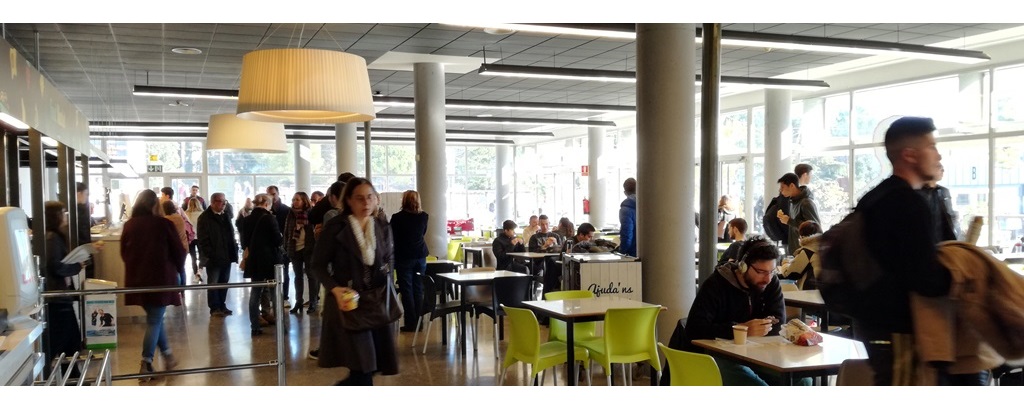AUTONOMOUS UNIVERSITY OF BARCELONA CAMPUS
Catalonia

The UAB Campus had been selected to host one of the decentralised biowaste valorisation experiences. As the initially planned implementation of biowaste treatment by anaerobic digestion turned out to be unfeasible at the site, it was decided to install community composting instead. This will allow to carry on with the experience of a decentralised, circular biowaste management system, which will serve the purposes of showcasing its benefits to the local stakeholders and of studying the impacts on the waste separation performance. The Autonomous University of Barcelona has approved an overall sustainability programme “Campus Saludable i Sostenible” (Healthy and Sustainable Campus) which encompasses a wide range of aspects related to sustainability, from water and energy consumption to waste prevention and management. The general aims and objectives of the DECISIVE project and the planned composting experience fit nicely into this strategic programme.
The characteristics of UAB’s location in the outskirts of the metropolis of Barcelona render the campus a suitable study area. It covers an area of 260 ha, of which 90 ha are built; 60% of the total area is composed of forest and agricultural fields. The campus is delimited by highways C-58 (SE) and AP-7 (NE), and Bellaterra village. The campus population consists of about 36.000 undergraduate and students, 4.800 PhD, 3.750 teaching staff and 2.340 administrative staff. This leads to the assumption that the communication and dissemination of the objectives and results will reach a great number of individuals and have a considerable impact on waste separation behaviour and biowaste quality. A great variety of activities generate wastes on the campus, from municipal waste and similar to specific wastes arising from research activities (agricultural waste, hazardous and non-hazardous laboratory waste, etc.). For the study the main concern lies with the general municipal waste and particularly the biowaste. At the campus 10 restaurants and a hotel generate kitchen and food waste. The Vila Universitària consisting of students’ residences and a number of houses for guest teachers are also sources of biowaste generation. Nevertheless, the study mainly focuses on the restaurants, considering that their biowaste generation and handling will be easier to control. A separate collection scheme for biowaste is currently in place, but offers potential for improvement.
The catering enterprises running the major campus restaurants have expressed their commitment to separate the biowaste they generate at source, which is the first condition for a high performance separate collection. Recent analyses indicate that between the biowaste generation of the restaurants and the separate collection of biowaste from the Vila an annual biowaste quantity of about 100 t can be expected. During the development of the project it is expected to increase the separation at source and the separate collection of biowaste in quantity and quality, mainly due to the deployment of awareness campaigns in all the campus (restaurants and Vila).

The community composting equipment has been sized to treat all the biowaste coming from one of the three main restaurants of the campus, which generates approximately 10 t/year. This biowaste will be mixed with yard trimmings from park areas of the campus and composted in a battery of several 1m3 composters manufactured from recycled plastic. In order to achieve a better performance regarding the quantity and quality of the biowaste produced, the waste generated by the restaurants will be monitored periodically by weighing the quantity produced and assessing the of impurities contained, such as plastic, paper or glass.
In addition to the decentralised treatment, communication activities aiming at awareness creation among the different groups of the university community will be performed. These actions include surveys on environmental habits, specific training sessions for biowaste generators and a general awareness campaign for the whole campus community. The aim of these actions is to increase the quantity and improve the quality of the biowaste collected on the campus, either to be treated in situ or in a centralised facility.

The campus offers an adequate location for the community composting equipment to be installed at the so called Space R, an area dedicated to waste management and research that houses already the Civic Amenity Site of the UAB. This area is fenced and offers electricity and water supply. The compost obtained will be used on the campus as fertiliser for gardening or for crops, and also to obtain other bioproducts, such as biopesticides.



